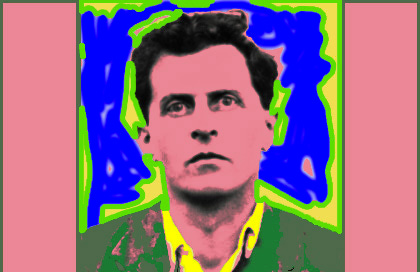Letters from Vienna #7
One of the things Michael Yeadon said in his recent discussion with Reiner Fuellmich and Wolfgang Wodarg reminded me very much of Wittgenstein: that the scientific method, which Yeadon has devoted his entire life to, is no match for the absolute evil we’re currently confronted with. Even if all the scientific questions are answered, Wittgenstein once opined, the most significant ones remain unanswered.
In his “Lecture on Ethics” Wittgenstein stated: “…if a man could write a book on ethics which really was a book on ethics, this book would, with an explosion, destroy all the other books in the world. – Our words, used, as we use them in science, are vessels capable only of containing and conveying meaning and sense, natural meaning and sense. Ethics, if it is anything, is supernatural and our words will only express facts; as a teacup will only hold a teacup full of water and if I were to pour out a gallon over it.”
Yet, paradoxically: “My whole tendency and I believe the tendency of all men who ever tried to write or talk ethics or religion was to run against the boundaries of language. This running against the walls of our cage is perfectly, absolutely, hopeless. – Ethics, so far as it springs from the desire to say something about the ultimate meaning of life, the absolute good, the absolute valuable can be no science. What it says does not add to our knowledge in any sense. But it is a document of a tendency in the human mind which I personally cannot help respecting deeply and I would not for my life ridicule it.”
This dilemma and the situation we are experiencing reminds me very much of Helmuth von Moltke, who wrote, when in prison, that ethics, when confronted with imminent death, is not enough; a spiritual dimension is needed.
The organisation or business one might say, which claims to deal with the spiritual dimension of life: the Church, has seldom in human history been found more wanting than now. Not just, most obviously: the Catholic Church, but all other churches too. None has come out emphatically condemning the ongoing genocide by jab, the masks, the tests, the restrictions or the lockdowns just as none came out in fierce, public condemnation of the Holocaust all those years ago. On the contrary: the Catholic Church, in Austria at least, currently supports what one Austrian terms: “suicide by jab” (although it, paradoxically, as the same Austrian points out, remains adamantly opposed to suicide per se), while the current Pope, who is wanted for crimes in Argentina, sharply condemns the spread of “misinformation” about vaccines. Perhaps most interesting of all: for many months there has been a bright, electronic ladder fixed to the steeple of Vienna’s St. Stephan’s Cathedral. This seems to symbolise the Catholic support for sending souls up to heaven in unprecedented numbers, just as the Catholic Church once supported the Nazis and the Holocaust in return for the former’s gold.
It is a sad fact of history that one of those involved in the Holocaust, Franz Stangl, was a Catholic who wrestled with the ethical issue of both the T4 euthanasia program and the Holocaust. He consulted church texts and listened to priests yet found no objection to the horrors he was confronted with; on the contrary.
I have to add that I am speaking of the Church as a whole, and especially the Vatican, which seems to be in the hands of Satanists and Freemasons, rather than individual priests and other members of the clergy. There have always been critical voices within the Catholic Church but they have invariably been suppressed.
All roads, one must also be clear, lead to Rome. Thus, when there was a scandal about the sexual abuse and mass murder of children in Ireland, it was the Vatican which sought to cover it up and not the local bishops. For the Vatican there seemed no wrong involved. That Ireland is so heavily vaccinated is not a little due to the pernicious influence of the Church.
And a key player in world history seems to be the Jesuits. While at university I was taught that it was the Jesuits who were responsible for making the Habsburg territories Catholic at the time of the Counter Reformation (Austria, I was taught, had once been a bastion of Protestantism in Europe).
The trauma of forcibly imposing Catholicism, which was repeated in different guises and different parts of Austria over the centuries, I would argue, remains one of the keys to understanding the Austrian psyche and it explains an awful lot, especially the average Austrian’s tendency to taciturnity, their repression of emotion and their hiding of true feelings.
One of the plays about this experience, which has many echoes in the present, is Karl Schönherr‘s “Glaube und Heimat“ (Belief and Homeland) from 1910. It deals with families torn by confessional discord and questions of integrity, conscience, survival, spirituality, pragmatism and sincere conviction. If the application of the ongoing economic, cultural and social blackmail on the part of the Austrian government is not to be compared to the fire and sword of the Counter Reformation, the conflicts involved in the question of getting the jab or not have torn many relationships, friendships, marriages and families asunder. Austria has seldom been so bitterly or so vehemently divided. It is perhaps the closest it has been to serious disturbance since 1934 and civil war is imaginable once more.



